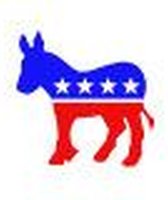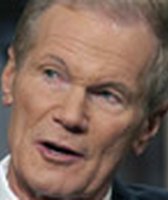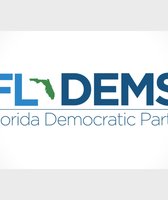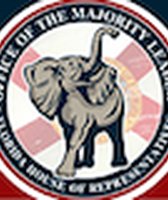Stand up for the facts!
Our only agenda is to publish the truth so you can be an informed participant in democracy.
We need your help.
I would like to contribute
Hillary Clinton says Donald Trump is no stranger to pay-to-play politics.
The basis of a new ad is a three-year-old donation of $25,000 from Trump’s foundation to help re-elect Florida Attorney General Pam Bondi, a Republican.
"He sent Florida Attorney General Pam Bondi thousands from his foundation, just as she was considering an investigation into his sham university," says the digital ad, released Sept. 14. "She cashed the check, blocked the case, and he tried to cover up the donation."
Since the story has reemerged, Democrats of the U.S. House Judiciary Committee requested the Justice Department to look into whether Trump paid off Bondi, as have the Tampa Bay Times and Miami Herald editorial boards, plus other political groups.
The Donald J. Trump Foundation, classified as a 501(c)(3) tax-exempt organization, is prohibited from making donations to political candidates — like all other nonprofits in that category. The news was interesting to Clinton, considering Trump’s criticism of the Clinton Foundation’s actions while she was secretary of state.
Sign up for PolitiFact texts
Bondi, attorney general since 2011, told reporters Sept.19 that she doesn’t regret the contribution, saying it had nothing to do with her office deciding not to investigate Trump over consumer complaints about his business seminars.
With some of the facts of the case unknown, Clinton’s ad makes claims that cannot be proven. For that reason, we decided to not put this statement on our Truth-O-Meter. Still, with all the news stories re-circulating about the donation, we wanted to take a closer look at the situation and separate fact from speculation.
"There are both innocent and not-so-innocent explanations here," said Ciara Torres-Spelliscy, an associate professor of law at Stetson University College of Law. "Given that foundations are not allowed to get involved in partisan politics, it is particularly suspicious that the foundation happened to make a mistake that hid the disallowed donation."
Where did that donation go?
At issue is the timing of a $25,000 donation the Donald J. Trump Foundation gave in 2013 to And Justice for All, an organization that was helping fund Bondi’s re-election campaign.
While most news reports refer to the group as a pro-Bondi PAC or a political committee, And Justice For All is listed as an electioneering communications organization. ECOs are unique among political groups, because there is no limit to how much you can give to candidates.
But they are limited in what they can do for a candidate. The Florida Department of State says these groups are limited to making purchases for "electing expenditures for electioneering communications or accepting contributions for the purpose of making electioneering communications."
These communications can be by television, radio, newspaper, magazine or mailers, and must clearly show a candidate for office without explicitly advocating the "election or defeat of a candidate but that is susceptible of no reasonable interpretation other than an appeal to vote for or against."
The strict definition is hard to comprehend, but Mark Herron, a lawyer in Tallahassee who specializes in ethics and elections, said many ECOs are created to back a particular candidate.
The original lawsuit
Just when Trump gave the money to And Justice For All is critical to understand, because the timeline is foggy.
On Aug. 25, 2013, New York Attorney General Eric Schneiderman filed a lawsuit against Trump University after consumer complaints alleged the school had misled 5,000 consumers who paid for real estate investment seminars.
Four days later, a reporter from the Orlando Sentinel called Bondi communications director Jennifer Meale to ask about the New York lawsuit and Trump seminars in Florida, according to a New York Times article. It reported that Meale said 23 complaints had been filed against Trump education seminars before Bondi took office in 2011. At the time, there was one complaint while Bondi was in office.
Meale said the the Attorney General’s office was reviewing the New York complaint, but there was no formal investigation in Florida, according to the Sept. 14, 2016, New York Times article.
On Sept. 9, 2013, Trump signed a Trump Foundation check for $25,000 to And Justice For All. The group received the check on Sept. 17, 2013, which was reported at the time by the Orlando Sentinel.
The timing makes it appear Trump sent the check to stop Bondi from investigating Trump Institute, the Florida affiliate. But the Associated Press reported in a Sept. 6, 2016, article that Bondi had "personally solicited" Trump’s contribution several weeks before her office was made aware of the lawsuit. This account means Bondi wouldn’t have known about the Trump investigation.
Bondi’s office decided not to pursue the case. Florida Assistant Attorney General Mark Hamilton made the "rightful determination" that because New York's lawsuit was on behalf of all consumers nationwide, "no further action need be taken," Bondi spokesman Gerald Whitney Ray told the Tampa Bay Times in June 2016.
Pay to play?
Both the Trump campaign and Bondi’s office deny she had anything to do with deciding not to pursue the investigation.
Steven Cheung, a Trump spokesman, cited a New York Times article that said the investigation was never brought directly to Bondi’s office but instead was considered by lower-level staff members, who opted not to pursue the case.
Bondi spokesman Gerald Whitney Ray reiterated this point to the Tampa Bay Times and PolitiFact Florida, saying Bondi was not personally aware of the Trump lawsuit when the donation was made to the reelection campaign.
But there are still problems with the donation.
Because Trump’s foundation is classified as a 501(c)(3) tax-exempt organization, it is prohibited from making donation to political candidates. This year, the foundation paid $2,500 to the Internal Revenue Service over the donation. We don’t know exactly when, because the tax paperwork has not yet been filed.
The $2,500 is often called a penalty, but University of Florida law professor Steven J. Willis said it was a 10 percent excise tax on political expenditures (as found in Section 4955 of Internal Revenue Code.)
"This was not criminal," Willis said of the tax Trump paid. "It was an action that resulted in a tax being owed and in the necessary ‘correction’ of the act."
Cover up?
Why did it take three years for the foundation to pay the tax? Trump’s campaign said the donation was wrongly listed on the foundation’s 2013 990 return to another group, "Justice for All," in Wichta, Kansas not "And Justice for All."
Here’s how it was errantly reported by the foundation to the IRS:
Cheung said the Donald J. Trump Foundation self-reported this issue and "paid a small fine of $2,500, and Mr. Trump reimbursed his foundation for the entire amount."
To further complicate the situation, some media reports on the contribution mention another organization with the same name in Utah.
We can’t prove this was an attempt to "cover up the donation," as Clinton said, but experts said the situation makes the mistakes peculiar.
Brian Galle, a law professor at Georgetown University said any "minimally competent" foundation should not list the wrong name on a tax return because a charitable organization has an identification number — more formally an employee identification number. Galles said that number is usually requested before you cut the check.
"Though the regulations do not explicitly state that foundations must do an EIN search, common sense dictates that that is the bare, bare minimum step that probably is necessary to verify accurately," Galle said. "Given a strong motive to conceal, the added risks of delay, and a literally unbelievably basic mistake, a reasonable person could well conclude that this was a deliberate effort to obfuscate."
Editor's note: A previous version of this story incorrectly referenced the timing of Bondi personally soliciting Trump's donation before her office knew about the lawsuit, as reported by the AP.
Our Sources
Email interview, Josh Schwerin, spokesman for Hillary Clinton, Sept. 9, 2016
Email interview, Steven Cheung, rapid response director for Donald Trump, Sept. 9, 2016
Email interview, Ciara Torres-Spelliscy, associate professor of law at Stetson University College of Law, Sept. 9, 2016
Email interview, Steven J. Willis, a professor of law at the University of Florida, Sept. 9, 2016
Email interview, Edward McCaffery, a professor of law at the University of Southern California, Sept, 12, 2016
Email interview, Whitney Ray, director of media relations for the Office of the Attorney General, Sept. 9, 2016
Email interview, Mark Herron, elections and ethics lawyer in Tallahassee, Sept. 19-20, 2016
Interview, Susan MacManus, political science professor at the University of South Florida, Sept. 16, 2016
Orlando Sentinel, "N.Y.'s Trump U suit draws Florida officials' attention," Sept. 13, 2016
Tampa Bay Times, "Trump contribution to Pam Bondi's re-election draws more scrutiny to her fundraising," Oct. 17, 2013
Tampa Bay Times, "Tracing the controversy of Trump's $25,000 donation to Pam Bondi," Sept. 7, 2016
Tampa Bay Times, "Democratic group files FBI complaint against Bondi, Trump," Sept. 12, 2016
Tampa Bay Times, "Bondi breaks silence, does not regret taking Trump's $25,000," Sept. 20, 2016
New York Times, "Donald Trump’s Donation Is His Latest Brush With Campaign Fund Rules," Sept. 6, 2016
New York Times, "New Records Shed Light on Donald Trump’s $25,000 Gift to Florida Official," Sept. 14, 2016
PolitiFact, "Reince Priebus' False claim that 80% of Clinton Foundation costs are overhead," Aug. 25, 2016
Politico, "Bill Clinton accuses Trump of using charity money to ‘pay off’ Pam Bondi," Sept. 7, 2016
Associated Press, "Florida AG asked Trump for donation before nixing fraud case," June 6, 2016
Press release, "A.G. Schneiderman Sues Donald Trump, Trump University & Michael Sexton For Defrauding Consumers Out Of $40 Million With Sham University," Aug. 25, 2013
Cornell University Law School, "26 U.S. Code § 501 - Exemption from tax on corporations, certain trusts, etc."
Nolo, "Limits on Political Campaigning for 501(c)(3) Nonprofits."
ProPublica, Donald J. Trump Foundation Inc. - 990 2013 tax form
Cornell University Law School, "26 U.S. Code § 4955 - Taxes on political expenditures of section 501(c)(3) organizations."
















































